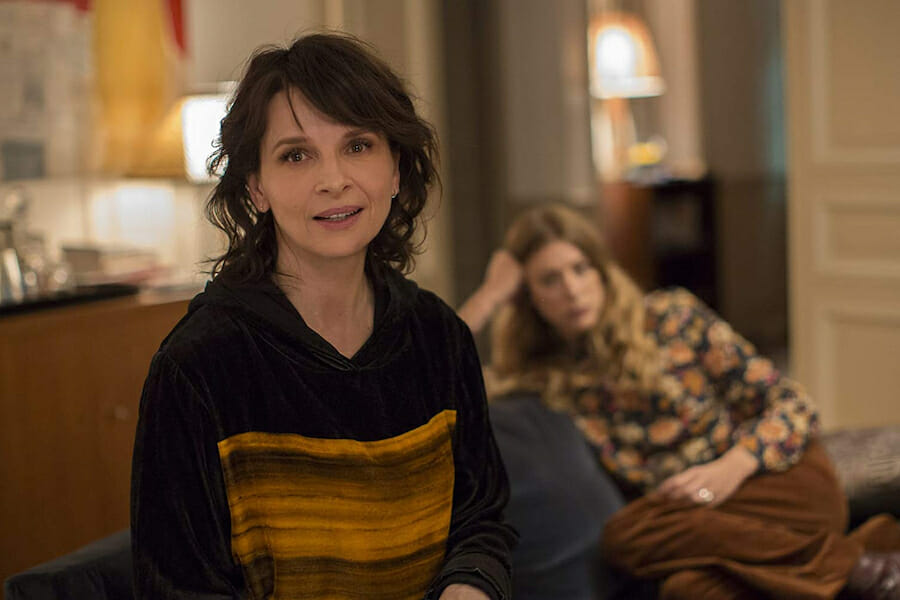
‘Non-Fiction’ Review
Kids today. No one reads anymore, and when they do, it’s only e-books and blogs. Such is the ongoing discussion throughout Non-Fiction (Doubles vies), the latest from writer-director Olivier Assayas (Personal Shopper 2016, Clouds of Sils Maria 2015). Lest you think the debate between traditional hardback books and digital literature takes up the full run time, you should know that such serious discussion is wrapped in a more traditional French sex farce…and a quite entertaining one at that.
Guillaume Canet (the excellent Tell No One, 2006) stars as publisher Alain Danielson. He has a lunch meeting with his client and friend, author Leonard Spiegel (a very funny Vincent Macaigne) where he declines to publish Leonard’s latest manuscript. Alain claims it’s too easy to identify the real people mentioned in the story, despite the name changes. Leonard says it’s “auto-fiction,” meaning his writing takes inspiration from his life. One of the ongoing gags (no pun intended) revolves around an inappropriate act in the theatre during a screening of Michael Haneke’s White Ribbon – or was it during Star Wars: The Force Awakens? Such is Leonard’s sly way of disguising his characters and life.
Juliette Binoche co-stars as Alain’s wife Selena, and Ms. Binoche takes full advantage of one of the few films where she can flash her comedic chops. Nora Hamzawi plays Valerie, Leonard’s wife, and she is delightful as the spouse who refuses to build up Leonard’s ego or provide any boost whatsoever to his confidence. Instead, she spends a great deal of time reminding him of what his critics are saying. The final piece to this puzzle is Christa Theret, who plays the Head of Digital Transformation for Alain’s publishing house, and is the constant instigator in the push towards digital.
Quintessentially French may be the best description for the film and these characters. At the dinner party, the conversation is stimulating and intellectual, while in their personal lives, it seems everyone is sleeping with someone else. Most every character worries about infidelities, while it’s a part of their own life. Even Twitter is treated as “very French” in that it consists of ‘4 very witty lines.’ Clever lines are spoken frequently, especially from Leonard, who says he writes “feel-bad books” rather than the usual “feel good” ones. And Alain refers to Leonard’s last book as “a worst seller.”
Fewer readers, books vs digital, and the popularity of blogs all play into the generational debate of change/progress vs traditional ways. Whether books and libraries are a relic of the past is certainly a viable topic, but the comedy-infused relationships keep the film from ever feeling too heavy. Ms. Binoche has a recurring bit where her TV role is misidentified as a cop, and she (in character) plays along with what may be the first ever Juliette Binoche onscreen joke.
Filmmaker Assayas previously tackled art appreciation, or the lack thereof in modern times, with his 2008 film Summer Hours. This time he turns his attention to literature and we can’t help but notice some similarities to the works of Woody Allen and Eric Rohmer with the vibrant dialogue and awkward relationships. The French title translates to “Double Lives” which is not only a better title but also a more descriptive one. However, by the time the ‘Martian Martian’ song plays over the final credits, you will likely feel entertained…in a mostly French manner.

